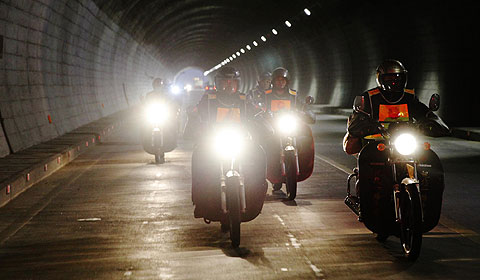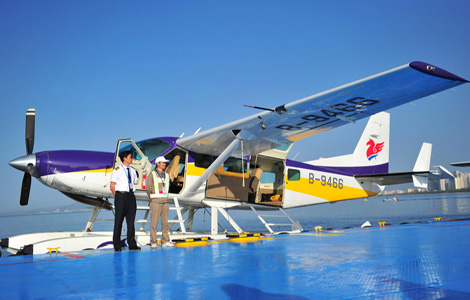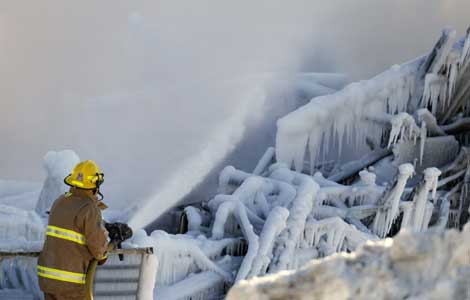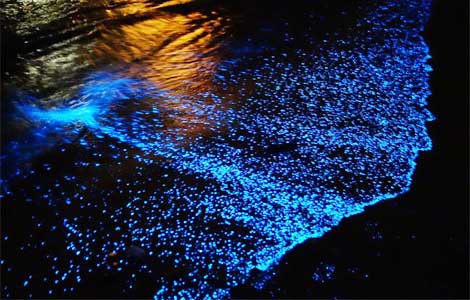Work on Nicaraguan canal 'to begin'
Updated: 2014-01-27 02:24
By ELIANA KIRSHENBLAT in New York (China Daily Latin America)
|
||||||||
Nicaragua and the Hong Kong Nicaragua Canal Development Investment Company say that groundbreaking for the controversial canal project will take place this year.
"The Nicaraguan government and HKND Group are pleased to confirm that canal construction work will begin as planned in December," a joint statement by Nicaraguan President Daniel Ortega and HKND Group chairman Wang Jing said.
Last June Wang's HKND group was granted a concession to manage the future shipping channel for 50 years, with the possibility of renewing the contract for another 50 years.
The project's backers say it would be huge economic fillip to Nicaragua and surrounding regions, boosting trade and tourism. It is a project many in the country have called for since the Panama Canal was built a century ago.
But it has attracted a lot of criticism locally and internationally. Opponents cite cost, feasibility, a lack of clarity about how and when the project will be built and environmental concerns.
The cost is put at $40 billion, about 10 times Nicaragua's annual GDP. That is supposed to pay for an inter-oceanic connection between the Pacific Ocean and the Atlantic Ocean via Lake Nicaragua. It would come with an oil pipeline, a dry route, two deepwater ports, two airports and two duty-free zones, Nicaraguan authorities say.
Manuel Kautz, president of the Nicaraguan Canal Authority, had earlier said the project's start would be delayed until next year, and that the final path of the canal had yet to be determined.
No details of the route were issued with Ortega's and Wang's statement, and HKND's website says assessments are still being done.
Jean-Paul Rodrigue, a transport expert at Hofstra University in New York, said building such a canal is technically feasible, but he is highly skeptical about the economics.
"With today's technology and engineering capability you could do this project. The current Panama canal project highlights that. What it is not is commercially viable. This project is estimated right now at $40 billion, but mega projects almost always come with huge cost overruns."
As a comparison, planned expansion of the Panama Canal will cost about $6 billion, he said, adding that he does not think the Nicaraguan canal would be able to compete with an upgraded Panama Canal.
The Panama expansion is expected to mean massive cargo ships will finally be able to use the canal, which is not wide enough or deep enough for the largest of them. Lines that use the Panama Canal complain about long wait times and high costs, and these will increase after the upgrade, although by how much is as yet unclear.
"Still, the Panama Canal expansion … is being undertaken by the Panama Canal Authority, which is managed by very serious people who know what they are doing," Rodrigue said. "It is a very thoughtful project in a very stable country."
It is unclear how HKND group expects to succeed with such a project, Rodrigue said.
"You have this … Chinese operator wanting a $40 billion project in an unstable country with no very clear plans about how to do it. Is this a joke or what?"
HKND's website says there is huge demand for the project. It says trade has increased steadily in the region since 2009, but that older canals cannot accommodate today's larger cargo ships. Last year the Panama Canal lost the world's biggest container shipping company, Maersk Line, to the Suez Canal in Egypt, which has no locks, and which costs less to use.
Because of the huge building costs, the new canal will cost far more to use, Rodrigue said.
Even with delays in the Panama canal expansion, the upgraded canal should come into service, even with the time it takes to reabsorb business, about the same time as Nicaragua's does, supposing that canal is built, Rodrigue said.
So Nicaragua's long, expensive canal will be directly competing with a newly updated Panama Canal, he said.
Opponents of the Nicaraguan project say the canal, which will run through Lake Nicaragua, Central America's largest freshwater lake and Nicaragua's primary source of drinking water, will severely damage the lake and its environment. The lake is also home to an island with an active volcano, and with villages.
HKND's Wang said last year that protecting the area was a top priority.
"I take all responsibility for any environmental damage. I have told my employees that if we make a mistake on this front, we will be dishonored in the history textbooks of Nicaragua."
He mentioned a completion date of 2019, which, if groundbreaking does take place this year, would set a five-year completion schedule, or half the time it took to build the Panama Canal.
Most Viewed
Editor's Picks

|

|

|

|

|

|
Today's Top News
Talent returns to China, but progress slow
China's banks must evolve or perish
China takes measures against H7N9
Holiday fireworks lose sparkle
US tariff investigation clouds commerce
Uygur teacher involved in separatism
Three dead in US mall shooting
Li Na clinches Australian Open title
US Weekly

|

|















